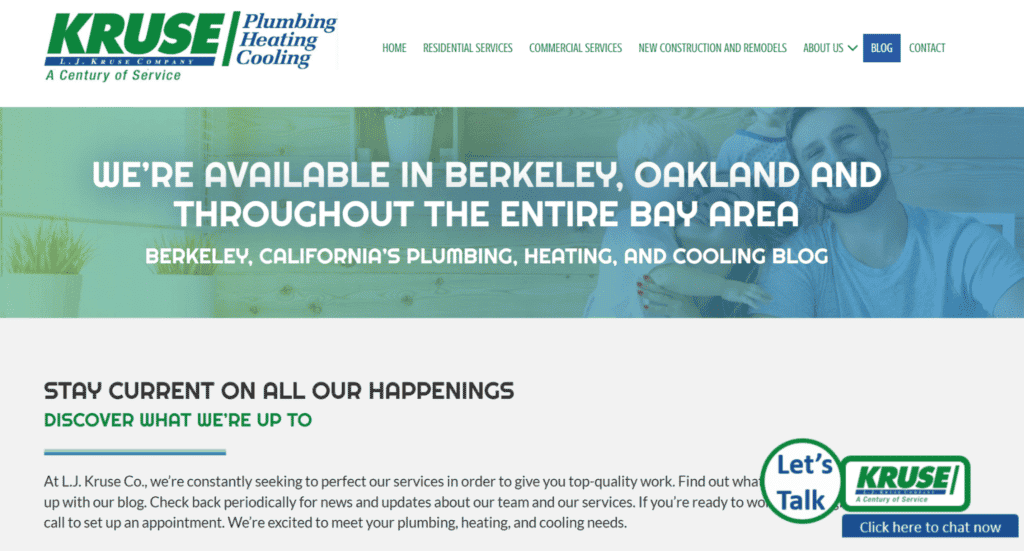What is Reputation Management & Why Does it Matter?
Reputation management is a simple concept: It’s how a business manages what people think of their company. It’s how the public views a company, and what a company does to maintain or improve that opinion.
A business’s reputation can be damaged by bad news (such as lawsuits or customer complaints) or it can be improved (by winning customer service awards or garnering marketing successes). This fine line is where reputation management often lives, and it’s especially important for small and local businesses, whose success often depends on positive word-of-mouth and referrals.
A company that fails to manage its reputation risks losing customers, reducing future sales, and damaging its bottom line. If a company’s reputation is damaged enough, it can even go out of business.
That might sound dramatic, but consider this: 94% of consumers avoid businesses with a bad or negative reputation.
What Are Customers Looking At Anyway?
There are many kinds of “reputations” or public opinions that businesses have to manage. Your customers, both old and new, are looking at your business’s:
Consumer trust and confidence in your services through reviews
Employee trust and confidence in the leaders
Customer satisfaction and customer loyalty
Product and service quality
Overall public image (influenced by all the above plus any actions/statements the business takes)
It can be overwhelming for a local business to handle and manage all the above. Fortunately, businesses can partner with a reputation management partner like Signpost. To help you get started, we’ll also cover six simple ways business owners like you can monitor how your local or small business is being perceived (both your online presence and offline presence, too).
Signpost is used by thousands of small service businesses to build a trusted reputation online with reviews. Let us show you how our review software works.
6 Ways to Monitor What People Are Saying About Your Business
Knowing what people are saying about your business can inform your online reputation management strategy and also help you improve your customer experience over the long run, boosting your profitability. Let’s take a look at six easy ways you can investigate your business’s reputation:
1. Conduct general research
You can get started with general research through a very simple Google search of your company name. Let’s say, for example, you operate All City Plumbing. You’d simply type this name into Google and (ideally) would find the most relevant information on your business. The search engine results page will likely bring up your Google Business profile, Yelp and Facebook pages, any recent news, and anything else that might be of help to you.

Keep a special eye out for your Google Business ranking as it’s one of the first things your customers will see about your business. (If you want to know more about what Google My Business is and how it plays a part in your search engine optimization (SEO), check out this article.)
Also, be sure to check out your company website. This might seem obvious, but as a business owner, your first instinct might not be to be on your website all day, everyday. Are you showcasing a positive brand image that will attract potential customers? Is your site linked to your social media profiles so customers can easily find you? Is your website updated and still reflective of your current business product and service offerings and values? These are all things that can be evaluated through a general search.
2. Review your business’s online review platforms
Your business’s online reviews are an important part of its overall reputation. If people have a poor impression of your business, no amount of word-of-mouth advertising can overcome this bad perception.
If you’ve done the work to build a great online presence for your company, you should also be checking in regularly on your business’s online testimonials. This will keep you apprised of any negative information that’s been posted about your company and allow you to take action where needed.

If you’re starting to get a lot of negative reviews or low star ratings, it may be time to rethink your service offerings or revisit the way in which customers use your company’s products and services.
It’s impossible to combat every single complaint that gets posted online, but it is possible to monitor what’s being said about your business and nip potential problems in the bud before they spiral out of control. It’s important that your business stays on top of maintaining a respected online reputation through positive reviews so customers view your service as trustworthy and reliable.
Some important review sites for this purpose include:
3. Check your social media accounts
The digital marketing landscape has grown incredibly fast, especially on social media platforms. Checking on your company’s online reputation should be part of your daily routine. Start by checking your online review platforms, then move over to social media accounts and respond to any comments customers have posted about you.
Your company Facebook Business Page is a good place to start. If you see any negative comments, make sure to address them publicly, but take the details offline to a private response. The key is to stay cool and assess the situation before making any rash decisions that could damage your business further.
Don’t forget other important social media channels including Instagram, a more visual medium for your marketing strategy, and LinkedIn, which caters to your professional network and industry partners.

Savage and Son, a local contracting company in Nevada, maintains an engaging Instagram account!
4. What are your employees saying?
Your reputation isn’t solely rooted in customer feedback. It’s also essential you keep other stakeholders in mind, such strategic partners and employees.
In today’s business world, more and more employees are taking to the internet to review their current employers, as well as potential new employers. It’s another realm in which social media has grown.
You can check out Glassdoor, a site where employees can anonymously post their opinions of their work environment, management, and the overall company culture. These reviews can be very useful when researching how your company is performing internally. It’s an inside look and incredibly reflective of how everyone (not just your customers) view your business.

Afterwards, you can also directly gain internal feedback through performance reviews and sit-downs with your team members. Ask them how they feel about the work they do, the company they represent, and what their suggestions are for areas of improvement.
5. Check your business’s blog comments
Don’t forget to check out your own company blog and forums associated with your business. Companies that have blogs tend to have more control over their reputation because they have direct contact with their customers in real-time. Blogs can be great tools for establishing customer relationships and getting active feedback from consumers.

Creating and managing a blog like the one above can help you engage with customers directly
Check the comments on a regular basis and make sure you reply and engage with your audience directly through this platform.
It’s also a good idea to post regularly on your blog so you can continually monitor just how your business is being perceived and keep the conversation going.
6. Set up Google Alerts
With Google Alerts, you can monitor discussions about your business even when you’re not actively online. Google Alerts is a free tool you can set up to monitor what’s being said about your business online in real-time. It detects changes in content and notifies you when there’s a new discussion or change related to the search term or keywords (AKA your business name).

When setting up a search, you have the option of receiving notifications by email or by having the results appear on your Google homepage. Regardless of your choice, make sure you select the “as-it-happens” option, which means that Google will automatically check every few minutes for new results matching your keywords. (If you prefer to only search for results once per day, use the “once-a-day” option.)
Easy Reputation Management with Signpost
Your reputation management goes beyond customer reviews and ratings. It’s not a one-and-done task, but a continuous process you need to stay on top of.
We’re here to help you do just that.
If you need review management software for your business without the headache, Signpost is a cost-effective solution. Start a demo today.

